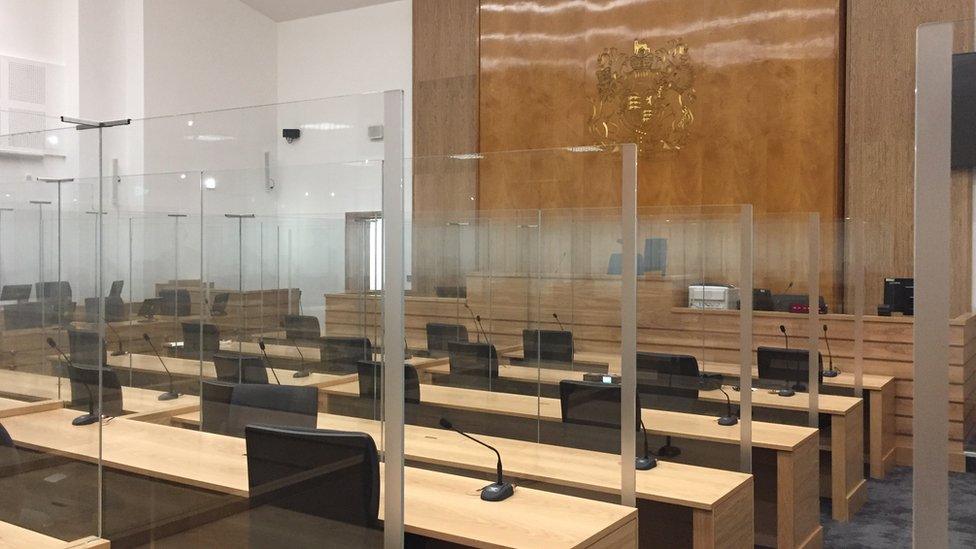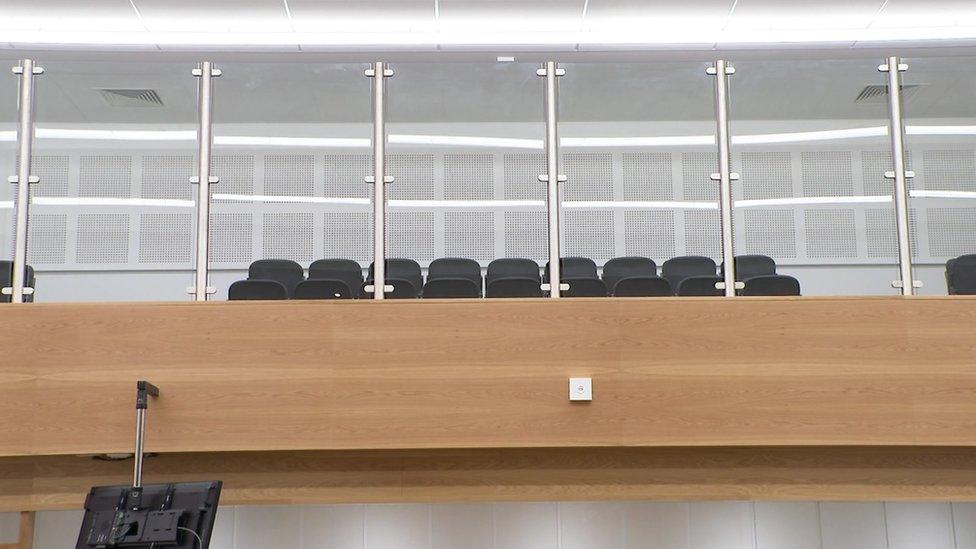Covid: Manchester 'super' courtroom opens to tackle backlogs
- Published

Social distancing during the pandemic has caused delays to proceedings
A "super" courtroom has opened to tackle backlogs caused by the coronavirus pandemic and make it easier to deal with organised crime gangs.
Walls were knocked down at Manchester Crown Court to make it three times the size of a usual courtroom so it can hold trials with up to 12 defendants.
Courts Minister Lord Wolfson QC said the £2.5m revamp "will get gang-related suspects in front of judges quicker".
He said it would also "speed up justice for victims".
The courtroom will be able to hold trials involving up to a dozen defendants which usually involves gang-related crime such as county lines, drug trafficking, murders and money laundering, the Ministry of Justice (MoJ) said.
Previously, a 12-defendant trial would have used up two or three courtrooms, sometimes for several weeks.

The revamp means the court can cater for a dozen defendants without disturbing other cases
The MoJ said trials requiring this level of space - known as "multi-handers" - had built up during the pandemic due to social distancing and the work would get through the cases at speed and prevent disruption to other cases in the building.
It said it would still continue to use remote technology it rolled out when the pandemic hit when required - such as defendants appearing via video-link to avoid delays and when vulnerable witnesses and victims relay evidence from outside the courtroom.
Lord Wolfson QC said the courtroom was "just the latest step in our efforts to tackle the impact of the pandemic on our justice system".
"It will get gang-related suspects in front of judges quicker - sending a message to would-be criminals that the justice system stands ready to hold them to account," he said.

Why not follow BBC North West on Facebook, external, Twitter, external and Instagram, external? You can also send story ideas to northwest.newsonline@bbc.co.uk